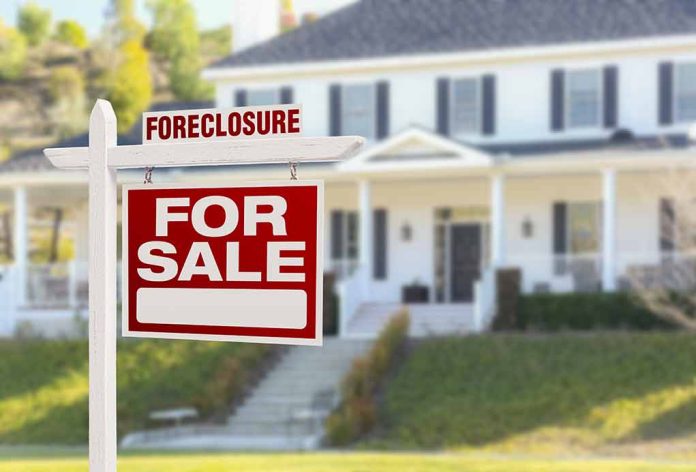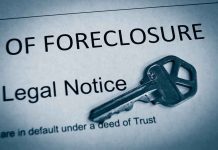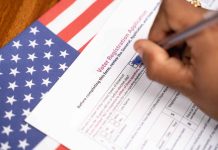
(NationRise.com) – Are you thinking about purchasing a foreclosed home? While this can be a viable option for many homeowners, there are some things to consider before you seal the deal. If you’re looking to buy cheap, don’t mind making some repairs, and are willing to take a risk with a foreclosed home, read on.
Mortgage payments can be overwhelming, especially with pandemic-era aid running out and foreclosures increasing. Many families have no choice but to resort to defaulting on their home loans, especially in the face of job loss and rising inflation.
While some banks do their best to work with homeowners to keep them housed and give them enough grace to catch up on mortgage payments, sometimes it just can’t happen. They forcelose on the home and attempt to recover their costs by reselling the home. Because of this, buyers can save a lot of money by investing in a foreclosed home, as the bank generally wants to unload foreclosed properties fast.
Here’s what the foreclosed home buying process looks like.
Find Foreclosed Home
The first step to getting into a foreclosed home is finding one that’s on the market. The internet is your friend when it comes to this search, and many sites will let you search for listed foreclosed homes in your particular area of interest.
You can check out real estate agency databases, bank websites, and Foreclosure.com. After the internet, bank offices or local newspapers (classified section) are excellent resources for your search.
Buy the Foreclosed Home
Once you find a home you like, contact the bank listing the site and make arrangements to investigate. This procedure — touring and buying the home — could vary depending on the bank, your credit, and local policies.
Consider Government-Owned Properties
Government-owned homes happen when a buyer defaults on a federal mortgage loan from the Department of Veterans Affairs (VA) or Federal Housing Administration (FHA). When these homes enter foreclosure, the government is responsible for repossessing and reselling them via brokers who work specifically for the agency that initially held the property.
To buy a home in this status, you have to speak directly to the broker. You can head to the United States Department of Housing and Urban Development (HUD) office to find available properties matching these criteria.
The Benefits and Risks of Buying a Foreclosed Property
When you’re interested in buying a foreclosed home, you can usually get something well below market value. However, there are also risks and disadvantages to purchasing a foreclosed home.
The first risk is the “as is” condition in which many foreclosed homes are listed. Just like with used cards, “as is” means cheaper, but it can also mean “bad.” It’s not worth it to save $20,000 today if the home comes with an immediate need for $50,000 in repairs. As the buyer of a foreclosed home, you’ll be fully responsible for repairs, and you won’t get any assistance from the seller or contingencies, as with a traditional home purchase.
Foreclosed homes are also often slower to settlement, taking many months, and may have attached warranties and back taxes you have to take before you can take possession of the property. Lastly, people losing their home could do extensive damage to it before they leave, leaving you with a major repair bill. This is a more common risk than you might think.
Emotionally, it’s also a bit difficult to buy a home that someone else is about to lose, or has recently lost. However, someone searching for a modest home with a low down payment may want to take the gamble with a foreclosed home option.
Copyright 2023, NationRise.com















